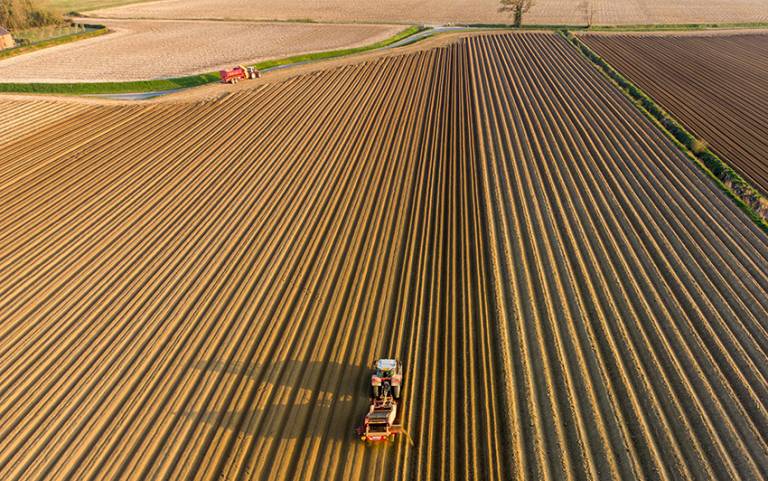First-of-its-kind quantitative assessment for sustainable agriculture launched
21 September 2021
The Sustainable Agriculture Matrix framework has been launched to help governments and organizations to evaluate progress, encourage accountability, identify priorities for improvement, and inform national policies and actions towards sustainable agriculture.

For the first time, scientists have assembled a quantitative assessment for agriculture sustainability for countries around the world based not only on environmental impacts, but economic and social impacts, as well. The Sustainable Agriculture Matrix, or SAM, provides independent and transparent measurements of agricultural sustainability at a national level that can help governments and organizations to evaluate progress, encourage accountability, identify priorities for improvement, and inform national policies and actions towards sustainable agriculture around the globe.
Agriculture is fundamental to sustainability. However, the definition of “sustainable agriculture” and the ability to measure it have been difficult to quantify. The project to create the Sustainable Agriculture Matrix began in 2017 by bringing together about 30 stakeholders and experts from around the world—including Oxfam, the International Institute for Applied Systems Analysis, the International Food Policy Research Institute, and the United Nations Food and Agriculture Organization, alongside academic partners from UCL, the University of Maryland Center for Environmental Science, University of Queensland and University of California Berkeley — to assess the impacts of agricultural production on a national scale around a diverse range of environmental, economic, and social dimensions of sustainability.
Dr Carole Dalin, Associate Professor in Sustainable Food Systems at UCL Institute for Sustainable Resources participated in the workshops and led the development and quantification of the environmental dimension of the Sustainable Agriculture Matrix. Carole is also Principle Investigator for the FOODIES project on developing integrated environmental indicators for sustainable global food production and trade, to which SAM is well aligned.
Globally, agriculture faces the challenge of increasing productivity to meet growing population demands for food, materials, and energy. Nations are tasked with developing a sustainable agriculture sector that is not only productive, but also nutritionally adequate, compatible with ecosystem health and biodiversity, and resilient. As a result, sustainable agriculture has been included as part of the Sustainable Development Goals ratified by all member countries of the United Nations in 2015.
The first edition of the matrix is composed of 18 indicators that measure the direct impacts of agricultural production on the environment and economy, and broader impacts on the whole society, recognizing that agriculture is deeply interconnected with other sectors. An emphasis in this first edition is on identifying trade-offs between performance indicators, such as between improved economic performance and reduced environmental performance, and also some less common examples of trade-offs such as increased agricultural subsidies did not necessarily improve human nutrition.
As a next step, the SAM consortium, a project funded by the Belmont Forum, is launching with six pilot countries and regions, including USA, Austria, Brazil, Turkey, South Africa, Sub-Saharan Africa. The consortium will use the first edition of SAM indicators as a starting point to engage conversations and coordination among stakeholders, and to co-develop country cases to identify strategies towards sustainable agriculture.
Funding for the Sustainable Agriculture Matrix effort was provided by National Science Foundation and the National Socio-Environmental Synthesis Center. More information about the SAM project is available here on the University of Maryland Center for Environmental Science's website.
The paper "Quantitative assessment of agricultural sustainability reveals divergent priorities among nations" was published by the journal One Earth.
Photo by Bob Brewer on Unsplash
 Close
Close

